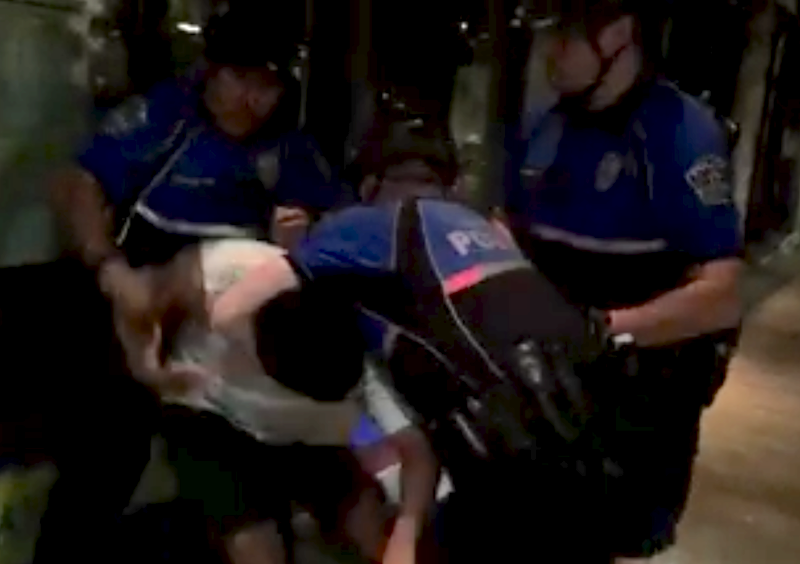If you cross the street illegally, you might get hit by a car.
If you cross the street illegally in Austin, Texas, you get might get tackled, pinned to the ground by several police officers, and punched repeatedly. Police may call for backup and you will likely be brought to jail.
A viral video from this weekend captures this scenario, when Austin Police Department officers arrested three men for jaywalking.
One may recall a similar video from last year showing a jaywalking jogger in gym clothes. She failed to show identification, and was dragged kicking and screaming into a police car.
It is unknown what happened before the tapes started rolling, and Austin police say they’re investigating this weekend’s incident.
However, does jaywalking ever justify a physical confrontation by police?
Bryan Wilson, the man who calls himself the “Texas Law Hawk,” is a criminal defense attorney based in Fort Worth. He talks to the Standard about his interpretation of the footage:
“From what I’ve observed, it looks like they’re being way too rough with the guy who’s closest to the camera,” he says.
Wilson says that resisting while handcuffed never helps the case and that the interaction often depends of the officers present.
“I even acted this out to see what was going on in the cop’s head because you’ve actually got to actually put yourself in their scenario,” he says. “When two or more cops are dragging you to the ground, sometimes they pull in opposite directions and they don’t understand it, someone’s twisted in a certain way that they can’t get their arms in the back.”
Regardless of the circumstances, do police officers have to tell you why you’re being restrained?
“They don’t, actually, and this is why you hear criminal defense attorneys telling people that to not resist, accept the handcuffs and go down to the station,” Wilson says.
His advice? Make your challenge in the court, not in the street.















